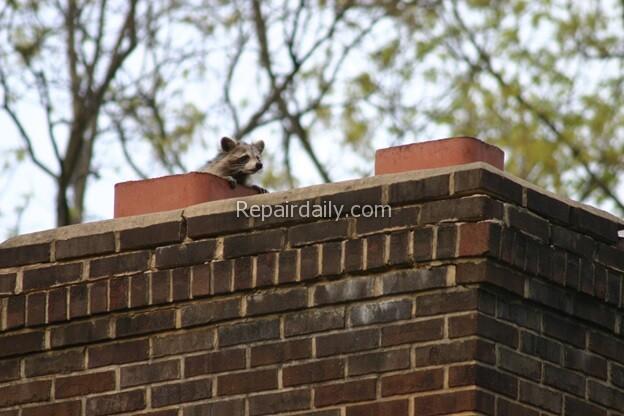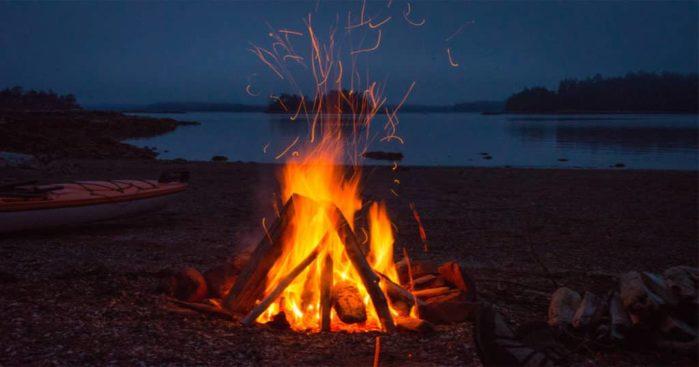
Does your house smells like a campfire? The lingering scent of smoke can be alarming, especially if you haven’t been roasting marshmallows in your living room. But fear not, there are several possible causes for this unexpected aroma, and even more solutions to help you kick the campfire smell to the curb.
One potential culprit is a blocked or damaged chimney. If the smoke from your fireplace isn’t properly vented, it can seep into your home, leaving behind that distinctive scent. Another possibility is a problem with your HVAC system. If there’s a malfunction in the heating or air conditioning unit, it can cause a smoky smell to permeate throughout your house.
Other common causes of a campfire-like odor or house smells like campfire include mold or mildew hidden somewhere in your home, such as in the walls or carpeting, or even leftover residue from a previous house fire.
No matter the cause, there are effective solutions available to eliminate the smoky scent. From regularly cleaning your chimney to inspecting and maintaining your HVAC system, taking proactive measures can ensure your home smells fresh and inviting once again.

So, if you’re wondering why your house smells like campfire, read on to explore the possible causes and discover the solutions that will have your home smelling clean and smoke-free.
Understanding the different types of smells regarding your house smells like campfire
Smell is one of our most powerful senses, with the ability to evoke strong memories and emotions. When it comes to the scents in our homes, we can generally categorize them into a few main types. There are pleasant, inviting smells like freshly baked cookies or clean laundry. Then there are unpleasant odors, such as the lingering smell of last night’s fish dinner or the musty aroma of a damp basement.
And then there are those mysterious, hard-to-place scents that fall somewhere in between – like the smoky, campfire-esque smell that may suddenly permeate your home. This type of odor can be particularly puzzling, as it doesn’t seem to fit neatly into the “good” or “bad” smell category. It’s an aroma that can be both familiar and unsettling at the same time.
Understanding the different types of smells, and how they can impact our perception of our living spaces, is the first step in tackling that unwanted campfire scent. By recognizing the unique qualities of this particular smell, we can then start to pinpoint the possible causes and develop effective solutions to banish it for good.
Possible causes of any house smell like campfire
There are several potential reasons why your home might suddenly start smelling like a campfire. Some of the most common culprits include:
Smoke from nearby wildfires or controlled burns
If there are active wildfires or prescribed burns happening in your local area, the smoke from those outdoor fires can potentially make its way into your home. Depending on the wind patterns and proximity of the flames, this smoky scent can seep in through cracks, windows, or even your HVAC system.
While this type of campfire smell is often out of your direct control, it’s still important to address it promptly. Smoke exposure, even indoors, can pose health risks, especially for vulnerable populations like young children, the elderly, or those with respiratory conditions. Taking steps to minimize smoke infiltration and improve indoor air quality can help mitigate these concerns.
Issues with the fireplace or chimney
Why a house smells like campfire? If you have a fireplace in your home, a malfunctioning or blocked chimney could be the culprit behind that campfire-like odor. When the smoke from your fireplace is unable to vent properly, it can end up circulating back into your living spaces, leaving behind that distinct smoky scent.
This could be due to a build-up of creosote or other debris in the chimney, a structural issue with the flue, or even bird or animal nests obstructing the airflow. Regular chimney cleaning and maintenance is crucial to prevent this type of problem and ensure your fireplace is operating safely and efficiently.
Cooking-related causes
Believe it or not, even your everyday cooking activities can sometimes result in a lingering campfire smell in the house and hence your house smells like campfire. If you frequently sear meats, sauté aromatic vegetables, or use a wood-fired oven or grill, the smoke and char from these cooking methods can permeate your home’s air and fabrics, creating a smoky aroma.
This is especially common in open-concept floor plans, where the kitchen is integrated into the living areas. The smoke and steam from cooking can easily waft throughout the house, leaving behind that campfire-like scent. Proper ventilation, such as using the range hood or opening windows, can help minimize this issue.
Mold or mildew growth
Another potential cause of a house smells like campfire is the presence of mold or mildew. These fungal growths can produce a musty, earthy odor that some people may perceive as similar to the smell of smoke.
Mold and mildew can thrive in damp, humid environments, such as bathrooms, basements, or areas with water damage. If left unchecked, these microbial growths can spread and intensify the smoky scent throughout your home. Identifying and addressing the source of the moisture problem, as well as thoroughly cleaning and treating any affected areas, is crucial for eliminating this type of campfire-like smell.
Musty or old furniture
Lastly, your house smells like campfire could be the result of older, musty furniture or other materials. Over time, the fabrics, wood, and other components of furniture can absorb and retain various smells, including a smoky aroma.
This is particularly common with antique or vintage pieces that have been stored in damp or poorly ventilated environments. The smell can also linger in upholstered furniture, carpets, or curtains that have been exposed to smoke or other odor-causing agents. Thoroughly cleaning, airing out, or replacing these older, smelly items may be necessary to get rid of the campfire scent.
Identifying and eliminating the campfire smell [House smells like campfire]
Once you’ve identified the potential cause or causes of the campfire smell in your home, the next step is to take action and eliminate the unwanted odor. Depending on the source, the solutions may vary, but there are several effective strategies you can employ:
Addressing fireplace and chimney issues
If the problem is related to your fireplace or chimney, the first step is to have a professional chimney sweep or HVAC technician inspect the system. They can identify any blockages, structural problems, or creosote buildup that may be causing the smoke to circulate back into your living spaces.
Once the underlying issue has been addressed, you can then focus on thoroughly cleaning the fireplace, chimney, and any affected areas to remove any lingering odors. This may involve using specialized cleaning products, as well as airing out the space by opening windows or running fans.

Improving kitchen ventilation
For cooking-related campfire smells, enhancing your kitchen’s ventilation is key. Make sure your range hood is functioning properly and venting the smoke and steam outside, rather than recirculating it back into the room.
You can also try opening windows or using portable air purifiers to help remove the smoky scent from the air. Additionally, wiping down surfaces, walls, and fabrics in the kitchen with a mild cleaning solution can help eliminate any residual odors.
Addressing mold and mildew
If mold or mildew is the culprit, the first step is to identify and address the source of the moisture problem. This may involve repairing any leaks, improving drainage, or increasing ventilation in the affected areas.
Once the moisture issue has been resolved, you can then focus on thoroughly cleaning and treating any visible mold or mildew growth. This may require the use of specialized cleaning products or the assistance of a professional mold remediation service, depending on the extent of the problem.
Cleaning or replacing old furniture
For houses smelling like campfire caused by musty or old furniture, your best bet is to thoroughly clean the affected items or, if necessary, replace them altogether.
Start by vacuuming and wiping down the surfaces to remove any dust or debris. You can also try using a fabric deodorizer or baking soda to help absorb and neutralize the smoky odor. If the smell persists, consider having the furniture professionally cleaned or, in extreme cases, replace the item with a newer, less-odorous alternative.
Improving indoor air quality
In addition to addressing the specific source of the campfire smell, it’s also important to take steps to improve the overall indoor air quality in your home. This can involve:
- Using air purifiers or HEPA filters to remove airborne particles and odors
- Regularly changing HVAC air filters
- Increasing ventilation by opening windows or using exhaust fans
- Maintaining proper humidity levels in the home
- By taking a comprehensive approach to addressing the campfire smell and improving your indoor air quality, you can help ensure that your home smells fresh, clean, and inviting once again.
Conclusion:
By understanding the potential causes, from smoke infiltration to mold and mildew, you can take proactive steps to identify and address the underlying issue. Regular maintenance, thorough cleaning, and improvements to your home’s ventilation and air quality can all play a crucial role in preventing and eliminating those unwanted smoky scents.
Remember, your home should be a sanctuary – a place where you feel comfortable and at ease. By taking the time to address any campfire-like odors, you can reclaim that sense of comfort and ensure your living spaces smell fresh, clean, and inviting. So don’t let that lingering campfire scent linger any longer – take action and enjoy the sweet smell of success in your smoke-free home.
I'm so excited to tackle all my home improvement projects! From plumbing to DIY and cleaning - I'm ready to get down to work! #homerepair #homecleaning #plumbing #diy #fixerupper #realestate #renovation #interiordesign #farmhouse #diy #homedecor #hgtv #home #farmhousedecor #modernfarmhouse #farmhousestyle #fixerupperstyle #fixandflip #homerenovation #realestateinvesting #beforeandafter #homesweethome #remodel #realestateinvestor #interior #realtor #joannagaines #flippinghouses #countryliving #design #homedesign #farmhouseinspired #investmentproperty #bhghome #renovationproject #farmhousekitchen #homeimprovement #farmhouseliving #cottagestyle #decor #realestateagent #magnoliahome #homeinspo #magnoliamarket #kitchendesign #dreamhome #shiplap #construction #houseflipping #investor #farmhousedesign #architecture #farmhousechic #homereno #rusticdecor #reno #kitchenremodel #webuyhouses #magnoliatable #rentalproperty #fixerupperinspired #newhome #interiors #homeremodel
